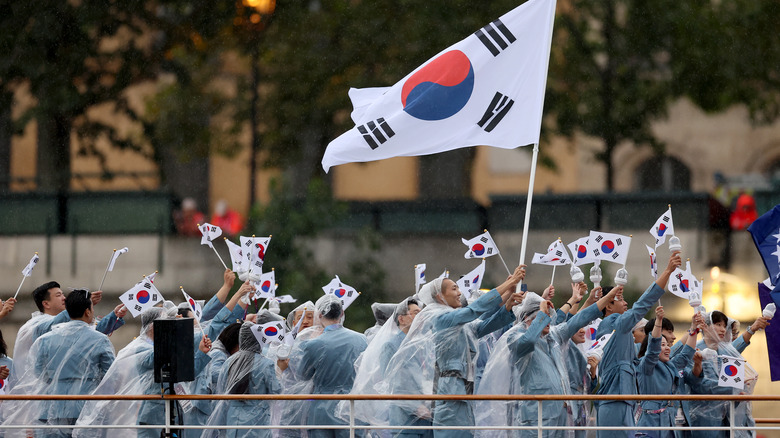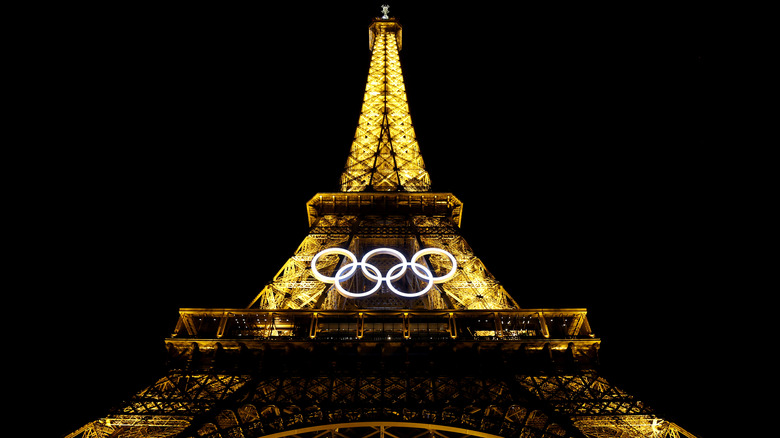While Olympic Food Issues Drag On, Team Korea Is Eating Well With Personal Chefs
Korea's Olympic team is beating the Paris Olympic Village's food shortage allegations with a culinary team of its own. Since the week prior to the games, the athletes' meals have been catered to them by a team of 15 Korean chefs and nutritionists, all flown into France to ensure the country's Olympians are eating well throughout the competition, according to the CJ Newsroom. The CJ Group is the catering company behind it all, and it has been working in partnership with the Korean Sport and Olympic Committee for the last seven years — providing the athletes with nourishing Korean meals everywhere they travel to compete.
In this summer's Paris Olympic Games, The CJ Group is serving out of the Korea camp — a service center at the Team Korea Paris Platform at the French National Center of Defense Sports in Fontainebleau that doubles as a cultural hub complete with training facilities, a medical and treatment center, and a dining hall serving familiar Korean cuisine. The team has sourced meat, milk, vegetables, and fruit from France while airlifting 1½ tons of rice and grains, and ½ ton of kimchi and seasonings from Korea to serve the meals and snacks that have become the envy of other teams' athletes. Examples include a variety of banchan (side dishes), like spicy pork and egg rolls served with rice and even Buldak ramen. Now, amid reports of the unsatisfying meals at the Olympic Village, other teams are scrambling to follow in Korea's footsteps.
Carbon friendly meals aren't fueling Olympians
Concerns have been rising among some of the athletes at the Paris Olympics over the food served. The menus were strategically planned to meet considerations surrounding the climatic and environmental impact of the games, which meant that the majority of the food would be sourced locally and organically with more seasonal and vegetarian options. Some athletes are worried that it comes at the cost of their performance, however, citing their disappointment in both the quality and the quantity of the food available.
Some options served at the food hall have included beef-less bourguignon, twisted artichoke-truffle croissants, and lentil dal. But after catering staff were forced to ration the number of eggs served at breakfast, they've responded to the demand for more animal proteins by bringing in an additional ton of meat and 700 more kilos of eggs. While some teams, including Korea and Australia, came prepared with their own food and catering teams, others are struggling to adjust. Team Britain has been particularly critical of the long wait times and inadequate meals to the point that they subsequently flew in their own chef.
It's not uncommon for teams to travel with their own food teams for the Olympics or other international competitions like the World Cup. However, it's particularly disappointing for a host country such as France, which is so proud of its gastronomy. The menu adjustments will, in turn, also come at a cost to the event's sustainability goals.

